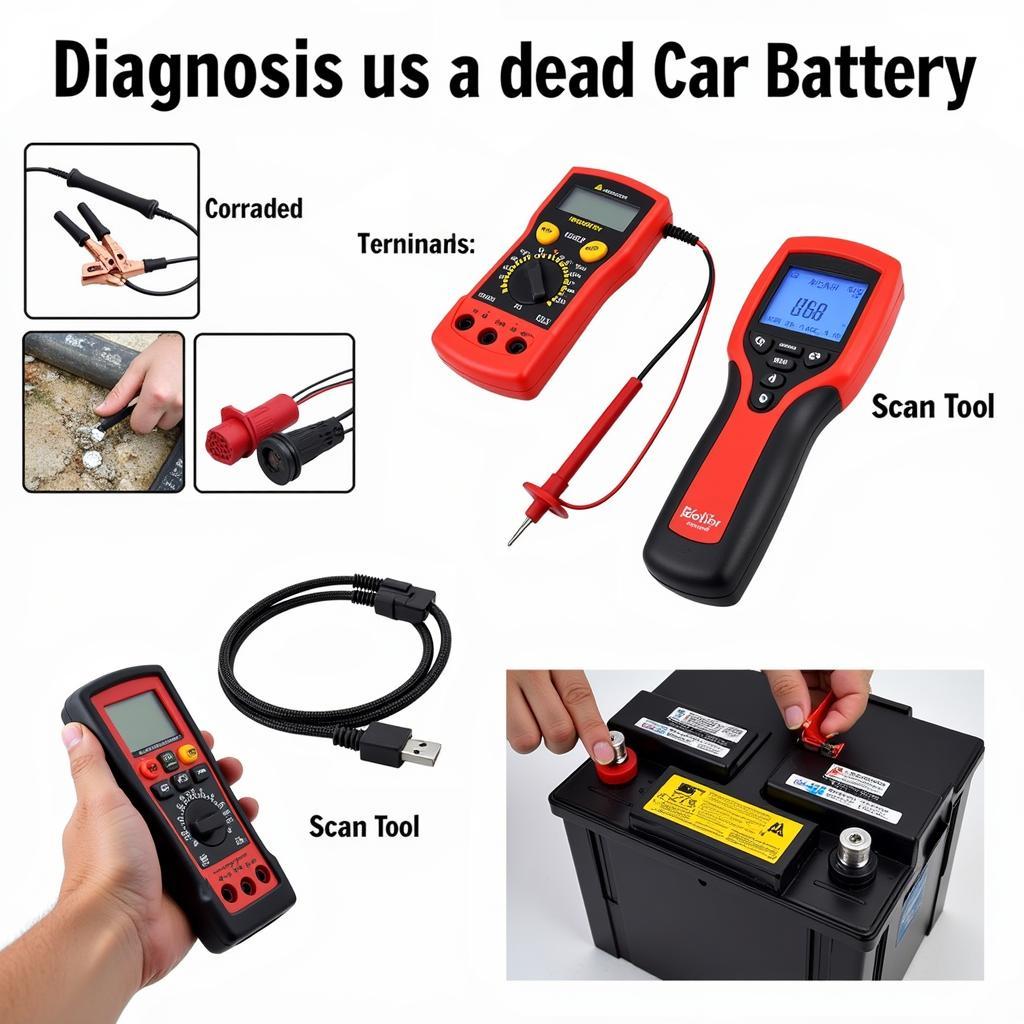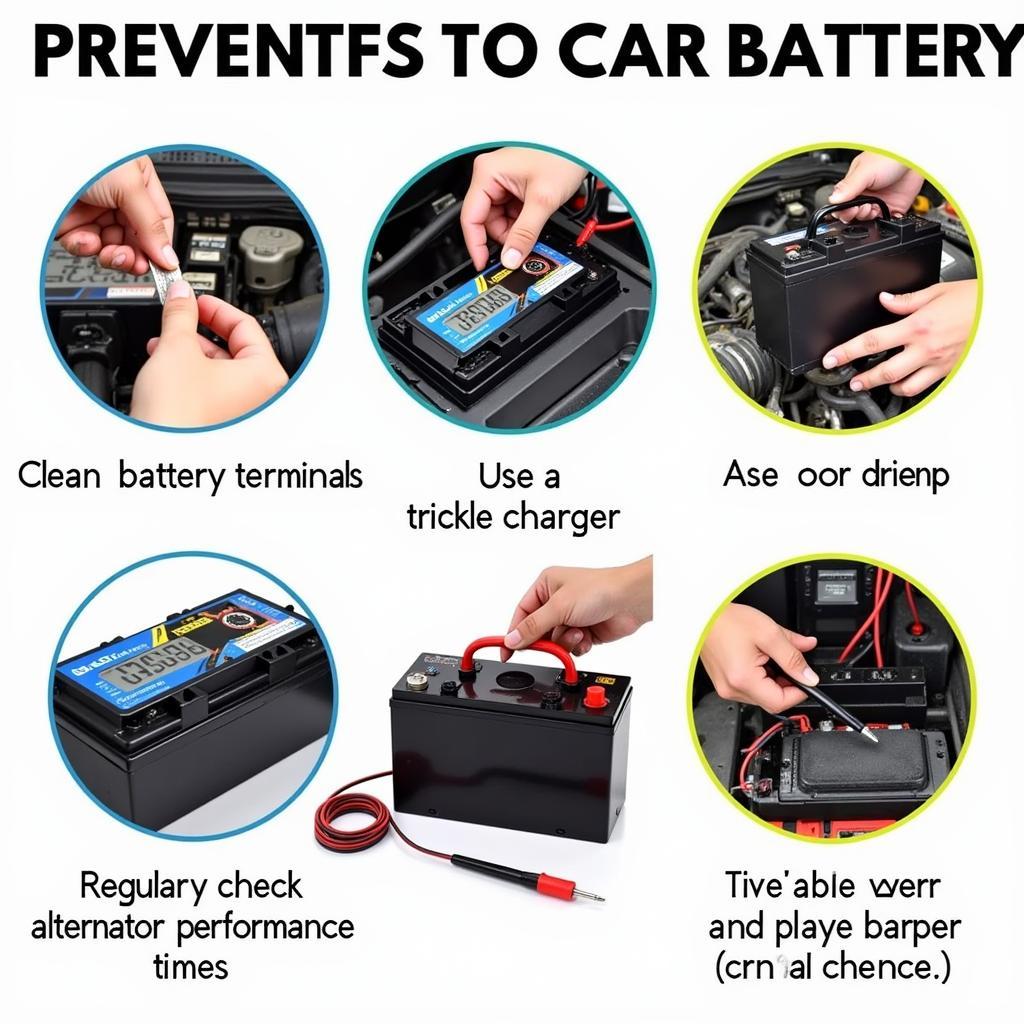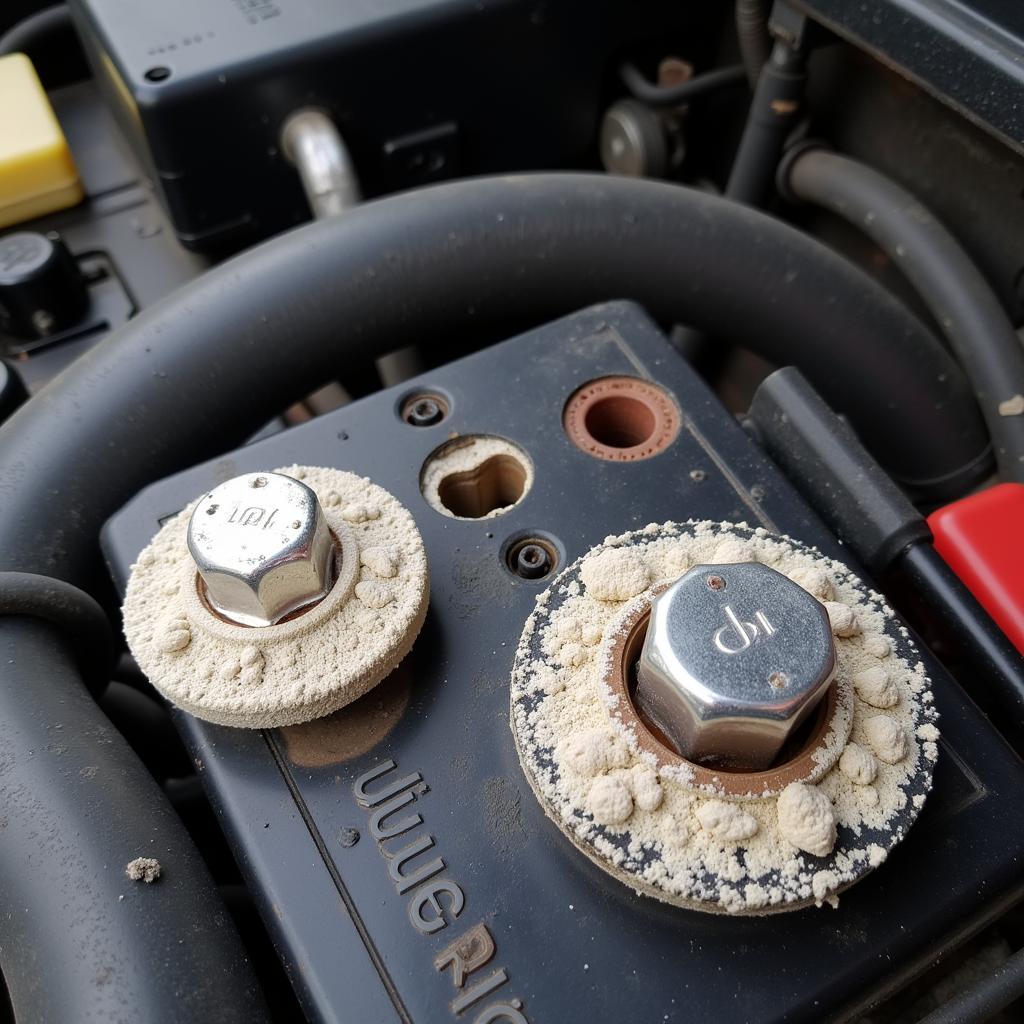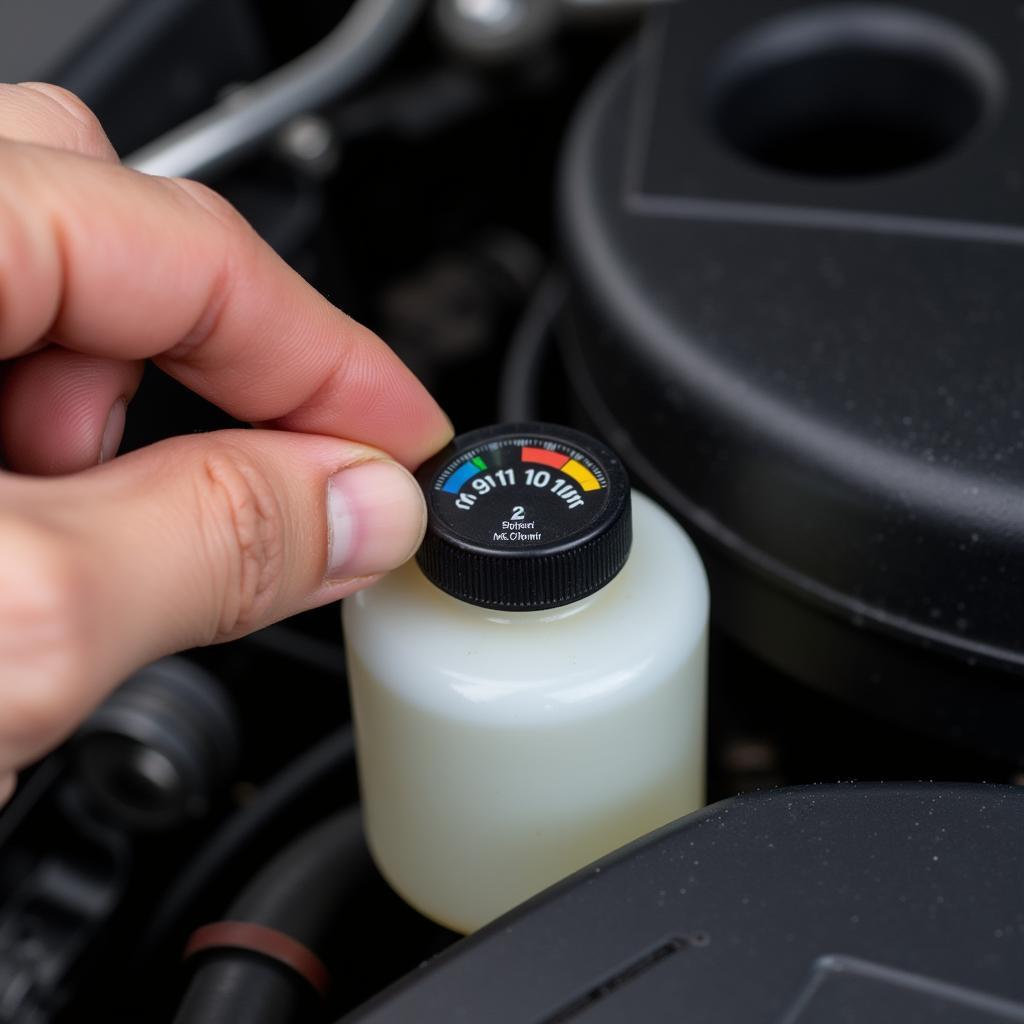Waking up to a dead car battery is a frustrating experience. If your car battery died overnight, you’re not alone. This common problem can stem from various issues, ranging from a simple parasitic drain to a more serious alternator malfunction. This article will guide you through the potential causes, diagnostic steps, and solutions, empowering you to tackle this issue effectively. check engine light and battery light came on
Why Did My Car Battery Die Overnight?
Several factors can contribute to a car battery dying overnight. Identifying the root cause is crucial for effective troubleshooting. Some of the most common culprits include:
- Parasitic Drain: This occurs when electrical components continue to draw power even after the car is turned off. Common culprits include interior lights, faulty radios, or aftermarket accessories.
- Old Age: Car batteries typically have a lifespan of 3-5 years. As a battery ages, its ability to hold a charge diminishes.
- Extreme Temperatures: Both extreme heat and cold can significantly impact battery performance. Cold temperatures slow down chemical reactions within the battery, reducing its capacity. Excessive heat can accelerate corrosion and evaporation, shortening its lifespan.
- Faulty Alternator: The alternator recharges the battery while the engine is running. A malfunctioning alternator won’t charge the battery properly, leading to a dead battery.
- Corroded Terminals: Corrosion on the battery terminals can disrupt the flow of electricity, preventing the battery from charging or discharging correctly.
Diagnosing a Dead Car Battery
 Car Battery Diagnostic Tools
Car Battery Diagnostic Tools
If your car battery just died overnight, the first step is to jump-start your car. Once running, you can perform several tests to diagnose the underlying issue.
- Visual Inspection: Check the battery terminals for corrosion. Clean them with a wire brush and baking soda solution if necessary.
- Voltage Test: Use a multimeter to measure the battery voltage. A fully charged battery should read around 12.6 volts. A lower reading indicates a discharged or faulty battery.
- Alternator Test: With the engine running, the voltage should read between 13.5 and 14.5 volts. A lower reading suggests a problem with the alternator.
- Parasitic Drain Test: With the car off and all accessories turned off, disconnect the negative battery cable and connect a multimeter in series. A reading of more than 50 milliamps indicates a parasitic drain.
Solutions for a Dead Car Battery
Depending on the diagnosis, several solutions can address a dead car battery:
- Battery Replacement: If the battery is old or faulty, replacement is the most effective solution.
- Alternator Repair or Replacement: A malfunctioning alternator will need to be repaired or replaced.
- Addressing Parasitic Drain: Identifying and fixing the source of the parasitic drain is crucial to prevent future battery issues. This could involve repairing a faulty component or disconnecting an unnecessary accessory. battery died while parked
Preventing Future Battery Problems
 Preventing Car Battery Issues
Preventing Car Battery Issues
Taking proactive steps can help prevent your car battery from dying unexpectedly. These include:
- Regular Battery Testing: Get your battery tested every six months, especially during extreme temperatures.
- Terminal Cleaning: Keep the battery terminals clean and free of corrosion.
- Limiting Short Trips: Short trips don’t give the alternator enough time to fully recharge the battery.
- Turning Off Accessories: Ensure all lights and accessories are turned off when the car is not in use.
“Regular battery maintenance is crucial to avoid unexpected breakdowns,” says John Smith, a certified automotive technician with over 20 years of experience. “Simple steps like cleaning terminals and checking the voltage can significantly extend the life of your battery.”
Can a Dead Battery Cause the Check Engine Light to Come On?
check engine light on after battery died A dead battery can sometimes trigger the check engine light. This is often due to low voltage affecting the car’s computer system. However, if the light persists after jump-starting and driving for a while, it could indicate a more serious underlying issue.
“Don’t ignore the check engine light, even if your car seems to be running fine after a jump-start,” advises Jane Doe, an electrical systems specialist. “It could be a sign of a problem that needs attention.”
Conclusion
Experiencing a dead car battery overnight can be a nuisance. By understanding the potential causes, performing proper diagnostic tests, and implementing appropriate solutions, you can effectively tackle this common issue. Regular maintenance and preventative measures can further minimize the risk of future battery problems, keeping you on the road and worry-free. If you’re unsure about any of these steps, or if the problem persists, consult a qualified automotive technician. Don’t let a dead battery ruin your day. car battery just died overnight
FAQ
-
How long does a car battery last? Typically, car batteries last between 3 and 5 years.
-
Can I drive with a bad alternator? You can drive for a short distance with a bad alternator, but eventually, the battery will drain completely, leaving you stranded.
-
What is a parasitic drain? A parasitic drain occurs when electrical components continue drawing power even when the car is turned off.
-
How do I clean corroded battery terminals? Use a wire brush and a mixture of baking soda and water to clean corroded terminals.
-
Is it safe to jump-start a car? Yes, it’s generally safe to jump-start a car as long as you follow the correct procedure.
-
What should I do if my check engine light stays on after a jump-start? Have the car inspected by a qualified mechanic to diagnose the underlying issue.
-
Can extreme temperatures affect my car battery? Yes, both extreme heat and cold can significantly impact battery performance and lifespan.


